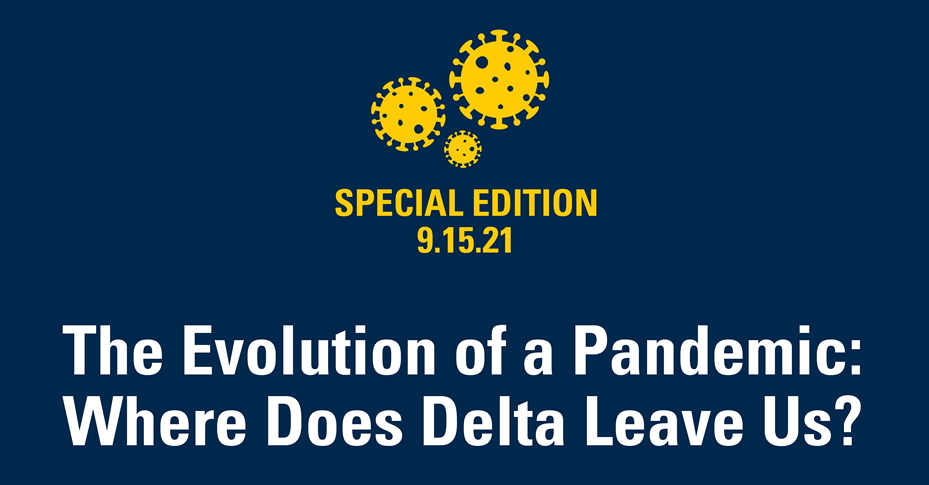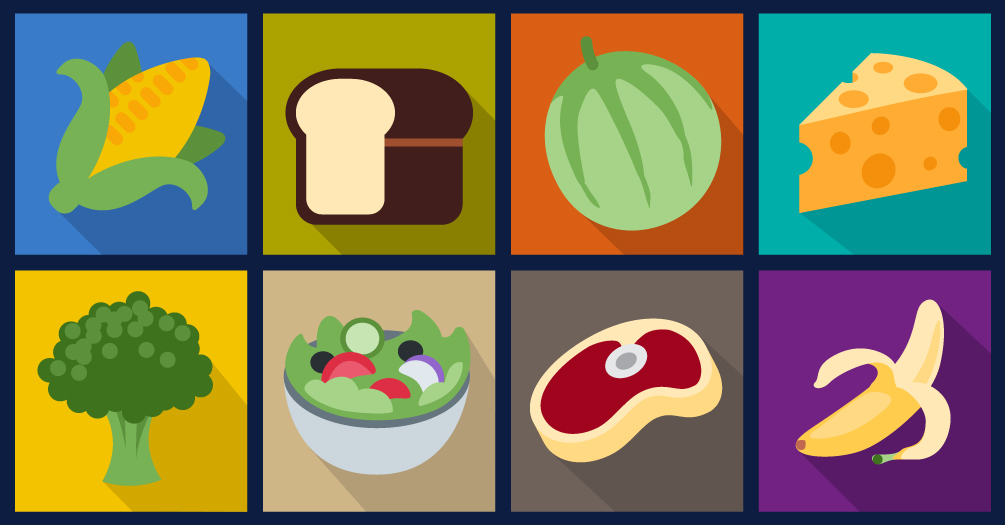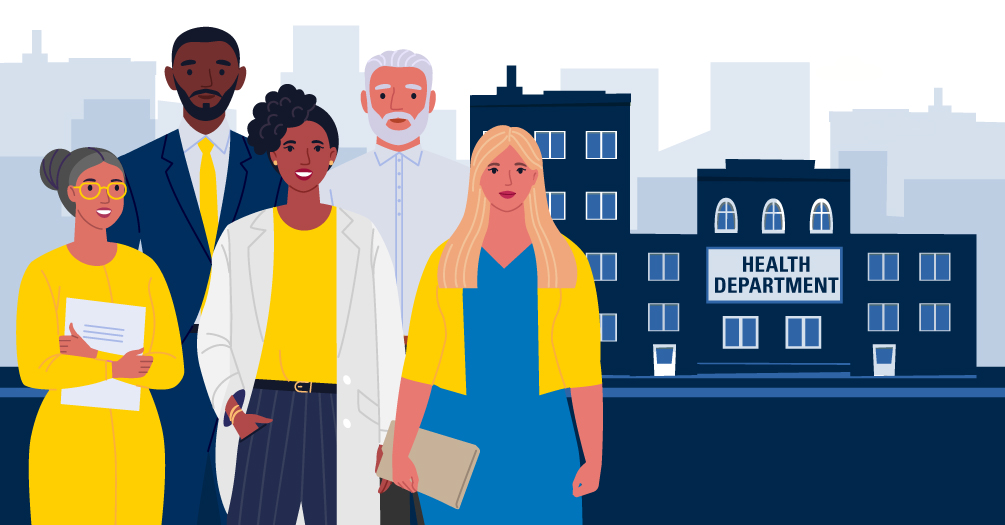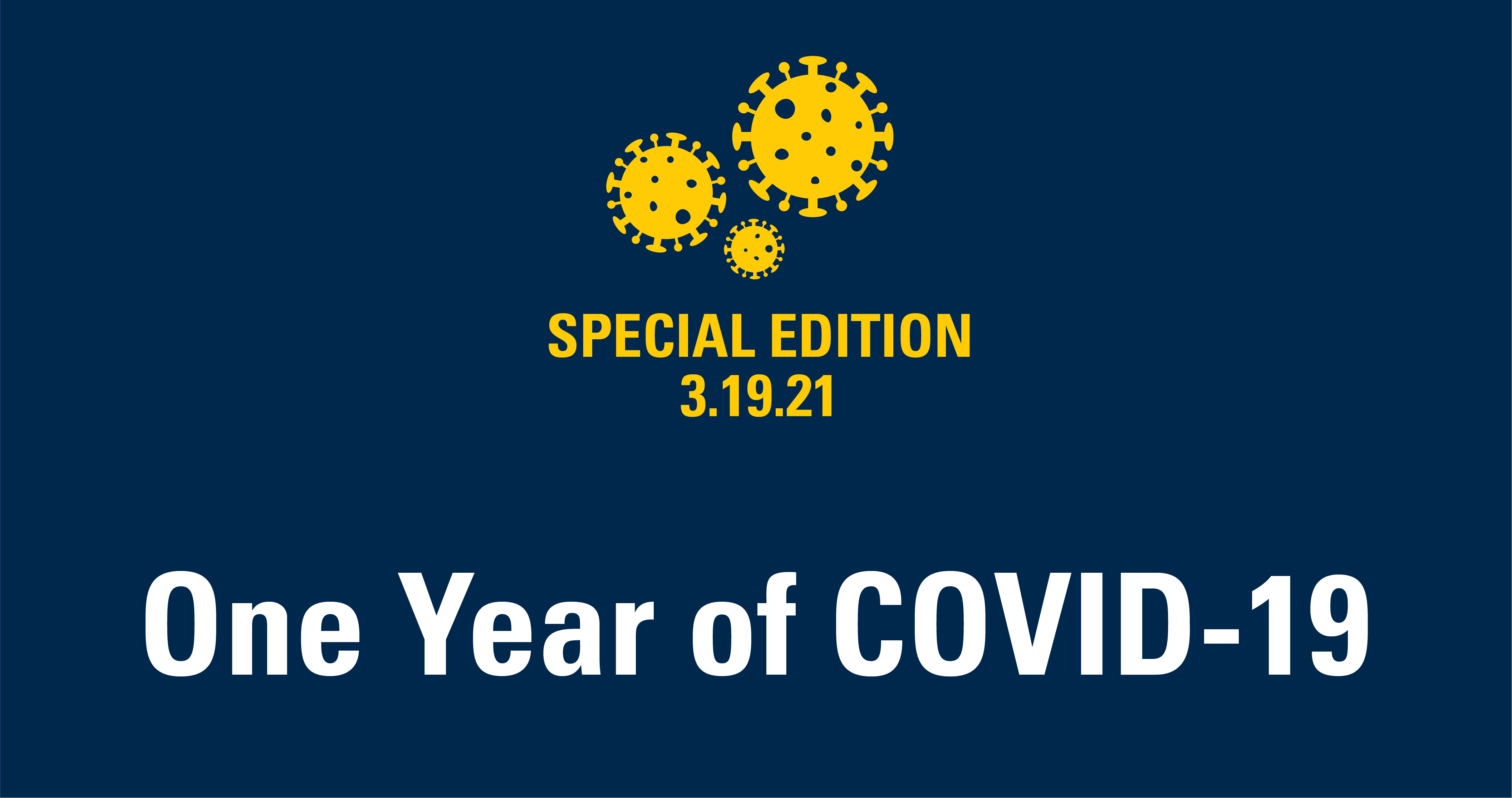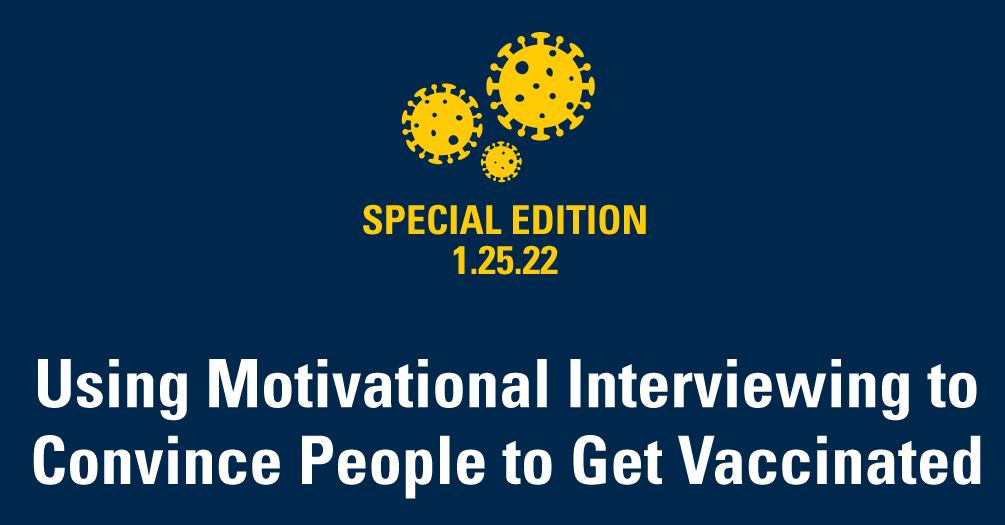
Difficult Conversations: Using Motivational Interviewing to Convince People to Get Vaccinated
Generally speaking, giving unsolicited advice to people only tends to annoy them and make them less likely to change any of their behaviors. Real change tends to come when someone sees a discrepancy between their own behavior and what they value as a person. So, how do you talk to a coworker, friend, or family member who is firmly entrenched in anti-vaccine beliefs? Preaching to them that COVID vaccines are safe and effective will most likely fail. But there are some lessons to be gleaned from a counseling style called motivational interviewing, where instead of trying to persuade someone, you subtly reflect back to them their own thoughts and feelings. In other words, you allow the other person to drive the conversation, with the idea that they themselves will see discrepancies between their actions and their beliefs. University of Michigan School of Public Health Professor Ken Resnicow has studied and used motivational interviewing since the early 1990s and has some timely tips for how to engage in these difficult conversations.

